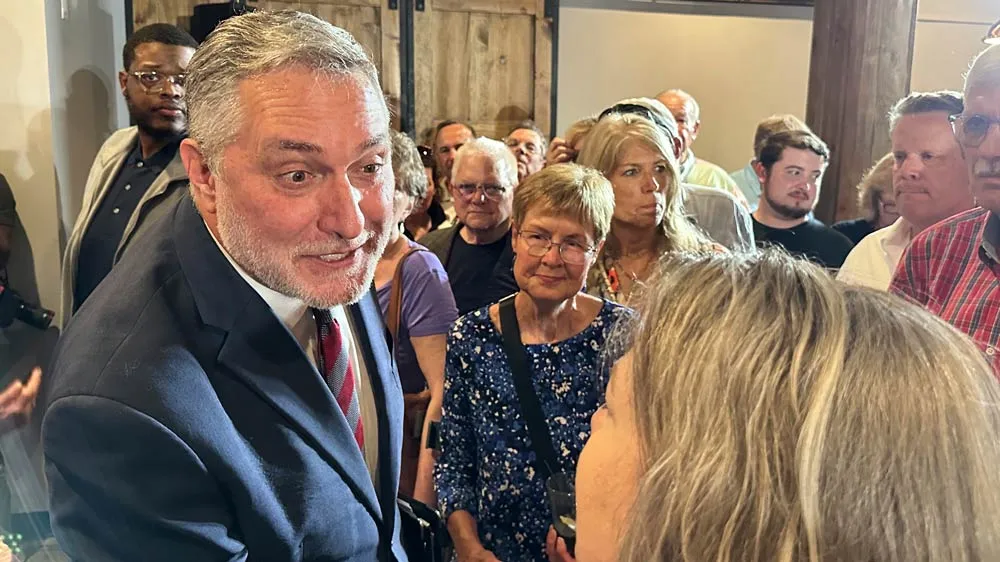November 7, 2012
Obama Bets Electorate Matches 2008 and Wins
Jason St. Amand READ TIME: 4 MIN.
WASHINGTON - Barack Obama and Mitt Romney made sharply different bets about who would vote this year.
It turned out that Americans who cast ballots looked collectively much more like what Obama had envisioned - a diverse tapestry that reflected a changing America - than the whiter, older electorate Romney had banked on.
Younger voters and minorities came to the polls at levels not far off from the historic coalition Obama assembled in 2008. The reality caught off-guard Republicans who banked on a more monolithic voting body sending them to the White House - and who had based their polling on that assumption.
The outcome revealed a stark problem for Republicans: If they don't broaden their tent, they won't move forward.
And it foreshadowed changes over the next generation that could put long-held Republican states onto the political battleground maps of the future.
"Clearly, when you look at African-American and Latino voters, they went overwhelmingly for the president," said John Stineman, a Republican strategist from Iowa. "And that's certainly a gap that's going to require a lot of attention from Republicans."
In exit polling Tuesday, voters mirrored the voting public's makeup of four years ago, when Obama shattered minority voting barriers and drove young voters to the polls unlike any candidate in generations.
White voters made up 72 percent of the electorate - less than four years ago - while black voters remained at 13 percent and Hispanics increased from 9 percent to 10 percent.
That flew in the face of GOP assumptions that the fierce economic headwinds of the past three years and the passing of the novelty of the first African-American president would trim Obama's support from black voters, perhaps enough to make the difference in a close election.
However, Obama carried Virginia, the heart of the old South, in part by having increased his record support from black voters there in 2008, which reached 18 percent, to more than 20 percent, according to Obama campaign internal tracking polls.
It was also reflected in turnout that matched his 2008 totals in places like Cleveland, which helped Obama carry Ohio solidly despite Romney's all-out effort there in the campaign's final weeks.
"Republicans have been saying for months" that Obama's black support would slip, Democratic pollster Paul Maslin said. "And what happens? When African-Americans had the chance to affirm him, they came out in droves."
Obama won in 2008 by carrying several long-held Republican states, including North Carolina, Virginia and Indiana. And while Romney easily carried Indiana and narrowly peeled back North Carolina, the fact that Obama held Virginia points to a long-term demographic shift that survived the pressures of the poor economy.
Obama carried each contested state except North Carolina by aggressively registering first-time voters. He matched his share of the youth vote from 2008, and nearly matched his support from seniors.
The 2012 electorate mirrored 2008 in terms of party identification and racial makeup, with self-identified Democrats topping Republicans and independents.
During his victory speech Tuesday, Obama nodded to the Democratic coalition he had held together.
"It doesn't matter if you're black or white, or Hispanic or Asian, or Native American, or young or old or rich or poor, able, disabled, gay or straight," Obama told his crowd of supporters gathered in Chicago. "You can make it here in America if you're willing to try."
The minority and youth turnout was not the only assumption Romney made that turned out to be wrong.
While voters considered the economy the driving issue in the election, they did not hold Obama wholly responsible, as Romney long had assumed they would.
That realization forced Romney to pivot late in the campaign and attempt to turn the election into a choice of competing visions. Republicans argued late in the campaign that Romney's performance during the first of three debates had energized a groundswell of enthusiasm seen in their polling.
But it seemed Obama's support was quietly amassing with more vigor, GOP strategists said.
"There really wasn't an enthusiasm gap," said Republican strategist Charlie Black, an informal Romney adviser. "And independents didn't break our way."
Still, Obama will have his work cut out if he hopes to heal the partisan wounds of his first term.
The voting public was more ideologically polarized than in 2008 or 2004. The share of moderates dipped slightly to 41 percent, while 25 percent called themselves liberal, the highest share saying so in recent exit polls. Thirty-five percent called themselves conservative, about the same as the previous two presidential contests.
The economy was rated the top issue by about 60 percent of voters surveyed as they left their polling places. But more said former President George W. Bush bore responsibility for current circumstances than Obama did after nearly four years in office.
That boded well for the president, who had worked to turn the election into a choice between his proposals and Romney's, rather than a simple referendum on the economy during his time in the White House.
Unemployment stood at 7.9 percent on Election Day, higher than when the president took office. And despite signs of progress, the economy is still struggling after the worst recession in history.
Obama is the first president to win re-election with unemployment above 7.2 percent since Franklin D. Roosevelt in 1936.


